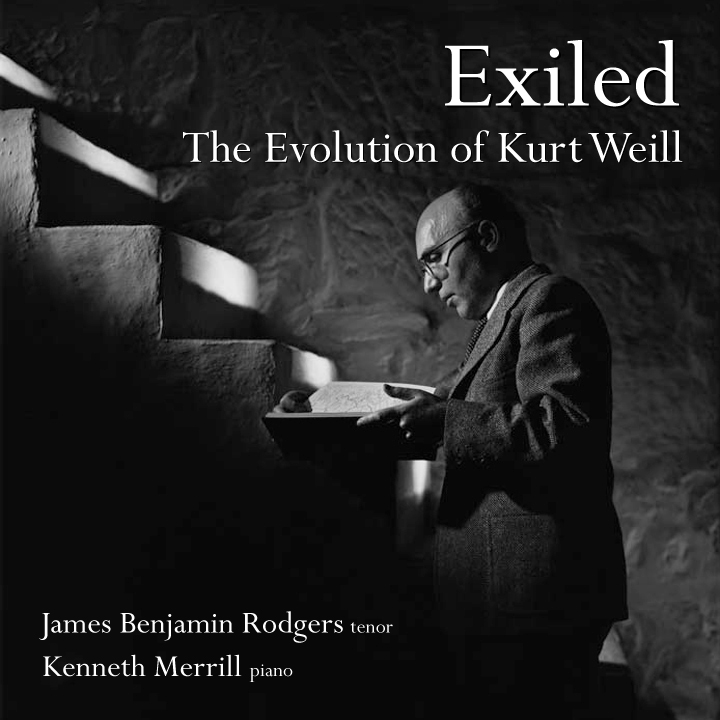A Message from the Artist
Since being a part of the Kurt Weill Foundation's Lotte Lenya Competition in 2007, Weill's music has become a constant presence in my life. As is so often the case with remarkable artists, the more time I have spent with his music, and the more I have discovered about his life, the more fascinated I have become.
Living through one of the most turbulent periods in recent human history, Weill's journey is a tale of survival and self discovery. No-where can this be seen more clearly than in his compositional output.
It was with this in mind that the concept for Exiled: The Evolution of Kurt Weill, and this companion website was born. For me, understanding how Weill's music corresponds to the various stages of his life greatly enhanced my understanding and respect for his output. I hope that, in working through this website as you listen to the album, you too will come to appreciate this fascinating man and the genius of his music.
James Benjamin Rodgers
At the Height of his Success
"Mack the Knife" is one of the most recognizable tunes in human history. However, few realize that it was conceived as the opening number for one of the most fascinating collaborations in the history of the stage, Kurt Weill and Bertolt Brechtís Dreigroschenoper (Three Penny Opera). Premiered in Germany, on August 31st 1928, Three Penny was the kind of critical and box office success any artist dreams of. Having set out to explore a new kind of German music theatre, Weill and Brecht created a smash hit.
However, the world in which they had triumphed was about to collapse. Having fended off the massive inflation of the early 1920ís, the US Stock Market crash of 1929 pushed Germany into a crippling financial depression. Unemployment surged to 30% and people were quite literally starving in the streets. In a desperate attempt to find deliverance, the populace turned their support to the right wing Nazi party headed by Adolf Hitler. Recognizing the potential fallout of a Nazi controlled government, the 82-year-old President Paul von Hindenburg reluctantly sought a second term in the 1932 presidential election. Though Hindenburg won in a run-off, Hitler gained an astounding 36% of the vote, a phenomenal figure given the uncompromising political platform on which the Nazis were campaigning.
In 1932 the Nazis won the Reichstag election with 37% of the vote, 15% more than their closest rival. Later that year, hopeful that Germany would come to its senses and that support for the Nazis would wane, Von Hindenburg called for a second Reichstag election. The strategy backfired and the Nazis re-asserted themselves as the most popular party in Germany. On January 30th 1933, Hindenburg bowed to political pressure and offered Hitler the chancellorship. This appointment, as Hindenburg had feared, paved the way toward a Nazi dictatorship that would change the world forever.
